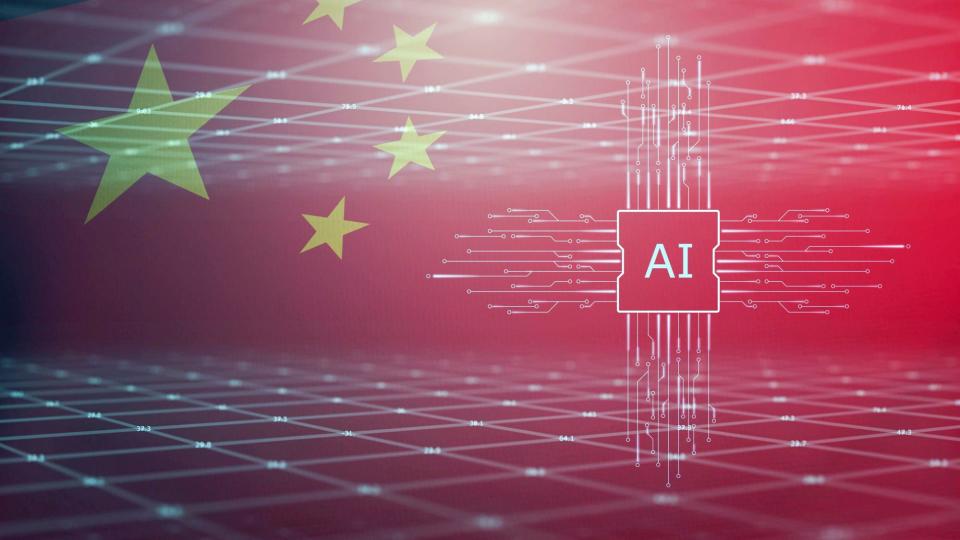China eyes at least 50 sets of AI standards by 2026, from chips to applications and safety
China is seeking to establish least 50 sets of artificial intelligence (AI) standards by 2026, according to a new draft policy from Beijing, as the mainland pushes to close the gap with the United States in developing this technology.
The proposed standards will include those that pertain to the training of large language models (LLMs) - the technology underpinning generative AI services like ChatGPT - as well as safety, governance, industrial applications, software, computing systems, data centres, and the technical requirements and testing methodologies for semiconductors.
At least 1,000 Chinese technology companies are expected to be covered by those standards, according to the document published on Tuesday by the Ministry of Industry and Information Technology (MIIT). The document also maintained that China will take part in establishing at least 20 international AI standards.
Do you have questions about the biggest topics and trends from around the world? Get the answers with SCMP Knowledge, our new platform of curated content with explainers, FAQs, analyses and infographics brought to you by our award-winning team.
The MIIT's standardisation initiative echoes the China-led resolution in the United Nations, which calls on the international community to create a "free, open, inclusive and non-discriminatory" business environment among wealthy and developing nations for AI development. This resolution on Monday was unanimously adopted in the UN General Assembly.

By establishing standards for the fast-growing artificial-intelligence sector, China is looking to close the gap with the United States in developing the technology and broadly adopting it to raise the efficiency in various industries. Photo: Shutterstock alt=By establishing standards for the fast-growing artificial-intelligence sector, China is looking to close the gap with the United States in developing the technology and broadly adopting it to raise the efficiency in various industries. Photo: Shutterstock>
"AI is the foundational and strategic technology driving the new round of technological revolution and industrial transformation," the draft policy said. By accelerating AI's integration within the country's economy, the MIIT said this would "profoundly change industrial production and economic-development patterns".
As such, AI would "play an important role" in raising China's manufacturing capabilities and internet prowess, according to the agency.
The MIIT's draft policy has taken on a pro-market, soft-law approach - instead of the typical command-and-control regulation - to guide and promote China's AI industry development, according to You Chuanman, director of the Institute for International Affairs Centre for Regulation and Global Governance at the Shenzhen campus of the Chinese University of Hong Kong.
"It's an innovation-oriented and market-friendly regulatory approach," You said. "This is more about enabling and promoting the development of the technology and its ecosystem," he added, describing it as beneficial to other industries.

More than a quarter of China's 369 unicorns - start-ups valued at more than US$1 billion - are involved in the nation's artificial intelligence and semiconductor sectors. Photo: Shutterstock alt=More than a quarter of China's 369 unicorns - start-ups valued at more than US$1 billion - are involved in the nation's artificial intelligence and semiconductor sectors. Photo: Shutterstock>
The MIIT's draft policy listed a total of 12 areas as critical technologies across the AI supply chain. These include LLMs, natural-language processing, computer vision and machine learning - a subfield of AI that refers to systems used to perform complex tasks similar to how humans solve problems.
China's AI industry chain, according to the draft policy, consists of four layers: the foundation - including the computing power, algorithms and data required to train LLMs - as well as the framework, model and applications.
In April, Alibaba Group Holding and chairman Joe Tsai said in a podcast interview that China trails the US by two years in the global race to lead AI development, as mainland enterprises struggle with Washington's tech export restrictions. Alibaba owns the South China Morning Post.
This article originally appeared in the South China Morning Post (SCMP), the most authoritative voice reporting on China and Asia for more than a century. For more SCMP stories, please explore the SCMP app or visit the SCMP's Facebook and Twitter pages. Copyright © 2024 South China Morning Post Publishers Ltd. All rights reserved.
Copyright (c) 2024. South China Morning Post Publishers Ltd. All rights reserved.

 Yahoo Finance
Yahoo Finance 